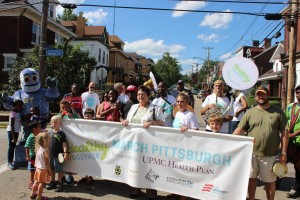Taking It to the Streets: New Ways to Get Uninsured Kids Enrolled in Medicaid and CHIP
Resource type: News
Georgetown Center for Children and Families | [ View Original Source (opens in new window) ]
By Sheila Hoag, Senior Researcher, and Debra Lipson, Senior Fellow, Mathematica Policy Research
 Traditionally, state and local Medicaid and Children’s Health Insurance Program (CHIP) staff have conducted outreach to uninsured children eligible to help enroll them into these public coverage options. Advocates have also organized public education campaigns and enrollment events. Despite dramatic progress in improving children’s coverage rates over the past fifteen years, limited resources and challenges related to finding these often hard-to-reach children have left nearly 4 million uninsured eligible children unenrolled in these programs as of 2012.[i]
Traditionally, state and local Medicaid and Children’s Health Insurance Program (CHIP) staff have conducted outreach to uninsured children eligible to help enroll them into these public coverage options. Advocates have also organized public education campaigns and enrollment events. Despite dramatic progress in improving children’s coverage rates over the past fifteen years, limited resources and challenges related to finding these often hard-to-reach children have left nearly 4 million uninsured eligible children unenrolled in these programs as of 2012.[i]
To capitalize on cities’ responsibility to protect public health, and city leaders’ knowledge of community networks, the Atlantic Philanthropies created a new grant project to try to engage city leaders in ongoing outreach and enrollment work. In January 2013, the Cities Expanding Health Access for Children and Families project, run by staff at the National League of Cities (NLC), began working with city leaders and local partners to develop and implement outreach and enrollment strategies tailored to each community. Through a competitive, three phase re-granting process that lasted 18 months (a process described in a report), NLC awarded implementation grants to cities with the most promising projects. In July 2014, seven cities launched campaigns: Garden City, Michigan; Hattiesburg, Mississippi; Jacksonville, Florida; New Bedford, Massachusetts; Pittsburgh, Pennsylvania; Providence, Rhode Island; and Savannah, Georgia. Dallas, Texas also received a small grant to help city leaders explore whether and how it could implement an outreach and enrollment campaign.
Leaders in these seven cities have embraced proven outreach methods while also testing innovative approaches to outreach and enrollment, such as:
- Identifying new allies. City leaders targeted outreach and enrollment assistance to families where they live, work, and play. Although leaders in all cities work closely with schools and churches, they also found new partners. For example, Garden City partners with a day care center and Savannah works with athletic trainers at a local hospital to identify student athletes without health insurance, and with a juvenile court where the Savannah team provides direct application assistance to eligible children and families. To maintain momentum reaching children during the summer school recess, Jacksonville, New Bedford, and Pittsburgh partnered with city recreation departments, which asked about health insurance coverage on camp and summer program enrollment forms, sharing results with the campaigns. Hattiesburg sends mobile teams to provide enrollment assistance at a variety of sites, including public housing complexes and health clinics. Providence provides enrollment assistance at an immigration services resource center and at an organization that helps formerly incarcerated people.
- Out-of-the-box approaches. Some cities have used innovative approaches tailored to their communities. For example, Pittsburgh officials encourage families to participate in “March Pittsburgh,” parades held in city neighborhoods, often scheduled to coincide with a community festival or event. Led by small music ensembles, children and their families are encouraged to bring their own instruments, improvise with pots and pans, or just to join the march. During parades, canvassers distribute health coverage information to attendees and, using mobile devices, can schedule appointments for families to get one-on-one enrollment assistance. The parades attract local media coverage, which helps the city’s coverage team expand its message to a wider audience.
- Keeping up momentum. As cities embrace outreach and enrollment efforts and see positive results, they have begun to seek ways to continue this work. They are trying to mainstream the strategies begun under the grant, so they become the new normal. Some have already found new funds to ensure these efforts continue. For example, Garden City recently won a Navigator grant for the next open enrollment period, as did one of Hattiesburg’s key partners, and Jacksonville won a $10,000 grant from a local foundation.
With the help of technical assistance provided by NLC and by sharing lessons with one another on monthly calls and at biannual in-person meetings, city staff have worked to overcome unexpected challenges and to replicate efforts shown to work. Mathematica Policy Research is monitoring and evaluating the campaign’s progress, and will report on the cities’ experiences through early 2016. Stay tuned!
[i] Kenney, G., J.M. Haley, N. Anderson, and V. Lynch. “Children Eligible for Medicaid or CHIP: Who Remains Uninsured and Why?” Academic Pediatrics, vol. 15, no. 3 (suppl.), 2015, pp. S36-S43. Available at http://www.ncbi.nlm.nih.gov/pubmed/25906959.
Learn More
> Cities Expanding Children’s Access to Health Care
This post was originally published on 14 October 2015.
Georgetown University Center for Children and Families, Mathematica Policy Research and National League of Cities Institute are Atlantic grantees.